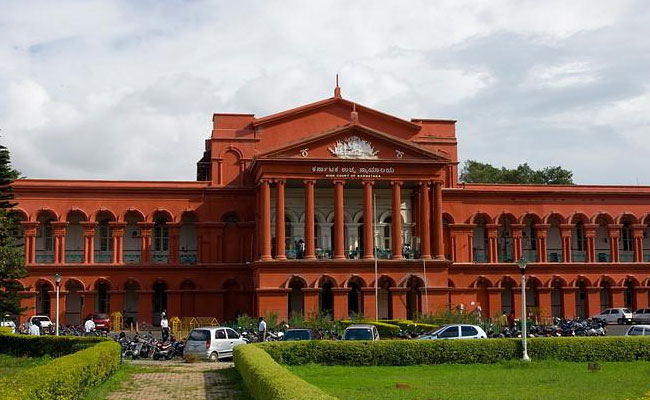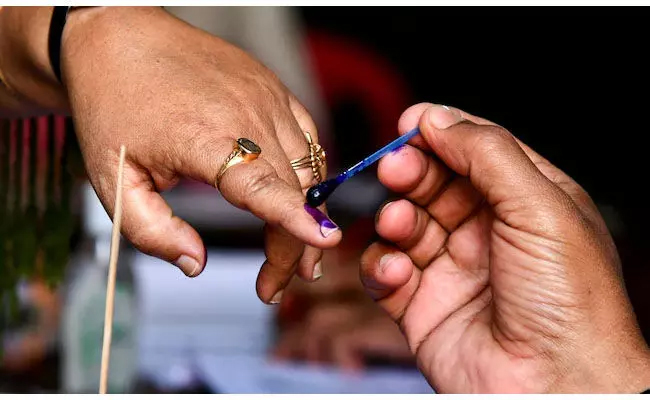Bengaluru (PTI): The High Court of Karnataka has upheld the pardon granted to one of the accused in a Central Bureau of Investigation (CBI) case stating that the pardon is permissible if the testimony of the approver would help successfully prosecute the other accused in the case who may not get convicted by other means.
The Special Court in Bengaluru's order of granting pardon to Sushil Kumar Valecha, 73, the director of Shri Lal Mahal Limited, New Delhi was challenged by co-accused M/s Shree Mallikarjun Shipping Pvt Ltd and Sateesh Krishna Sail, the MD of the company.
"Pardon is a permissible exercise of power by the concerned court and if full disclosure of facts are coming about in terms of the said pardon, such pardon should be permitted," the high court said, upholding the trial court decision in the matter.
The Special Court had on October 7, 2021 allowed the application of Valecha under Section 306 of the Criminal Procedure Code (CrPC) seeking pardon on turning approver in the case.
Sail is the current Congress MLA from Karwar. The case related to illegal iron ore mining dates to 2012. The crime was registered against several accused by the CBI which investigated the case and filed a charge sheet.
Several of the accused filed for discharge from the case but all of them were rejected. The trial court framed charges against the accused under IPC and Prevention of Corruption Act.
Valecha then filed an application seeking pardon, contending that he was only an employee of Shree Mallikarjun Shipping Pvt Ltd and he was willing to turn approver. The CBI filed a memo stating it had no objection. Thus, his application was allowed.
The challenge to this order of the trial court was filed by MLA Sail and the company before the high court which was heard by the bench of Justice M Nagaprasanna.
In its judgment on June 16, the high court said that the trial court's order was reasonable.
"It is a well-reasoned order which takes note of several judgments on the issue rendered by the apex court and allows the application filed by accused No 4 (Valecha). Therefore, I do not find any warrant to interfere with the order passed by the concerned court," the HC said.
Referring to earlier Supreme Court judgments, the HC said that the application for pardon can be considered if it helps the prosecution case.
The HC said, "The apex court holds that if by tendering of pardon, prosecution thinks that it will be in the best interest of the successful prosecution of the other offenders whose conviction is not easy without the approver's testimony, then the court should accept it."
The HC also directed the trial court to conclude the trial at the earliest.
It said, "The petition lacking in merit, stands dismissed. The concerned court, if it has not proceeded with the trial on account of pendency of the subject petition, shall now make every endeavour to conclude the proceedings by regulating its procedure."
Let the Truth be known. If you read VB and like VB, please be a VB Supporter and Help us deliver the Truth to one and all.
Hyderabad (PTI): Asserting that war and warfare is at the cusp of a major revolution, Chief of Defence Staff (CDS) General Anil Chauhan on Saturday said the Indian Defence forces are committed to adapting to changing environment and imbibing reforms to remain ready and relevant.
Addressing the Combined Graduation Parade (CGP) of 216 Course held at the Air Force Academy at Dundigal near here, General Chauhan said India's strength rests on robust institutions, democratic stability, and unwavering professionalism of our Armed Forces.
He said the intensity of operations may have ebbed, but Operation Sindoor continues.
"You (new officers) also join the Air Force at a moment when a new normal has firmly taken shape. An era defined by a high degree of operational preparedness, 24-7, 365 days. The intensity of operations may have ebbed, but Operation Sindhur continues," he said.
He further said the newly trained officers are entering the Indian Air Force during a phase of deep transformation of the Indian Armed Forces.
Integrated structures, joint operations, and national pursuit of Atmanirbhar Bharat in defence are shaping the future of India's military strength, he said.
"Your journey ahead will be accordingly guided by Jai, the first word of Jai Hind, that's victory. 'J' stands for jointness, fighting as one nation, one force. 'A' stands for Atmanirbhar Bharat, trusted platforms and systems made not just for India but for the world. And finally, 'I' for innovation, daring to think ahead and to be ahead of the curve," he explained.
General Chauhan further said battles in the older domains will always remain contested, often brutal. But in the new domains, they will be smart, swift, and shaped by intellect, innovation, and initiative. The force that masters new frontiers is more likely to prevail in future conflicts.




